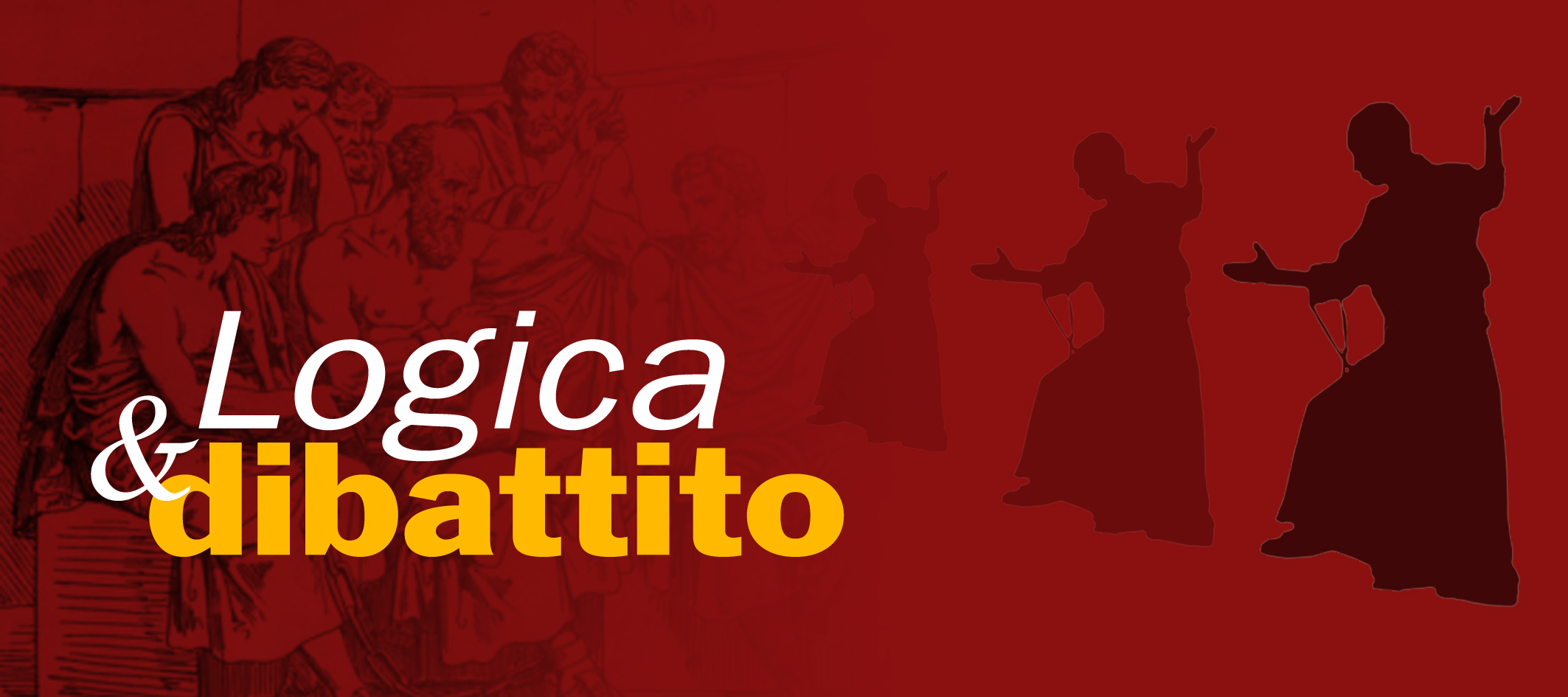WATCH THE VIDEO OF THE OPEN DAY ON JAN. 16, 2024
The logic and the debate-approach to pedagogy for the study of Buddhism.
The dialectic for the study and learning of phenomena
Starting from the teachings of the Buddha up to the current ones and mainly to the teachings of the Dalai Lama, listeners are invited to assume as true or wrong any statement within the teachings, not driven by blind faith, but on the contrary, by a faith / trust established on the basis of a careful analysis which allows you to match what has been heard to the known reality, in order to determine its truthfulness or falsehood.
It is only in this way that listening to the teachings can effectively become a path that helps us evolve and improve.
In the Buddhist academic world philosophy and psychology base their system of study and observation on logical analysis and dialectical method which once learned can be extended to any situation in life that involves the action of “thinking” and not only to the study of texts strictly Buddhists.
In order to make this interesting aspect of Buddhist education known and learned, the Institute together with Atisha Mathur offer a three-year study program, with alternating periods of intensive retreats at the Institute once or twice a year and online study supported by a tutor and the teacher’s contributions.
The first year based on the text Dudra, or Collection of Topics – a collection of relevant terms and concepts in Buddhist studies – the second year based on the text Lorig and the third year based on other fundamental texts, namely Tarig. The three years will start in February 7 2024.
The content of the text is not in any way religious; it is rather a classification of our phenomenal world in different ways, specifically adapted for dialectic.

 The purpose of logic is to understand phenomena that are not directly perceivable by the senses; we speak of hidden phenomena.
The purpose of logic is to understand phenomena that are not directly perceivable by the senses; we speak of hidden phenomena.
Hidden phenomena are at the basis of the existence of what we perceive, and they determine the way they work.
Most of our decisions are based on appearances received from our senses which obscure the fundamental nature of things. Hence, one speaks of ignorance.
Let’s take a simple example:
On an apparent level the world seems static and disconnected; its underlying nature consisting of change and interdependence is hidden from the surface.
In its very essence, logic is the study of how to formulate a valid reason with a resulting understanding
that matches world’s reality.

 The purpose of this method is to enable a correct understanding of the nature of things and the relationships among
The purpose of this method is to enable a correct understanding of the nature of things and the relationships among
them, which helps to make reliable decisions regarding our goals and how to achieve them.
To a large extent, we all draw conclusions based on assumptions of how we believe things are.
Relying on hypotheses, we perform actions that produce pleasant or unpleasant, fruitful or unsuccessful, expected or unexpected results.
What logic allows us to do is trying to bring our hypotheses as close as possible to the reality of a situation so that our corrective actions match the world, and the result is not misleading.
A small example from our daily life can be represented by a common situation that can happen to everyone going shopping, for example going to buy fruit:
the greengrocer tries to convince us that all his melons are sweet and offers us a taste.
 We discover that the melon we are tasting is really sweet. This leads our minds to create the link that all the other melons in the lot, sold by this shopkeeper, are also sweet.
We discover that the melon we are tasting is really sweet. This leads our minds to create the link that all the other melons in the lot, sold by this shopkeeper, are also sweet.
As a result, we will buy more melons than we expected.
If our hypothesis is confirmed, we will continue to go back to the same shop and buy melons until one day we get a bland melon.
From then on, the shopkeeper will become a liar and we will lose faith in him. This could lead us to another fruit seller who will persuade us that he is better than the previous one by offering us a sweet orange to eat, and you start all over again!
The problem, however, is not due to the shopkeeper or the melons but to our mistaken assumption.
From a technical point of view, the reason why we formulated the hypothesis was wrong, and therefore expecting a result corresponding to reality was impossible from the beginning.
The study of logic helps us to understand the difference between a correct and an incorrect reason in order to achieve greater consistency between our hypotheses and their results.
In the Buddhist context, the purpose of logic is to remove certainties based on erroneous assumptions, a characteristic that we all have in common.
Certainties based on erroneous assumptions, in turn, limit us to models on which we rely, which do not necessarily reflect what we actually think or feel they are, and much less are they the reality; a perception that then causes discontent and discomfort can arise from this.
The sequence applied in the use of logic is mainly aimed at determining which are valid reasons.
Once a reason is established, it is used by testing the subsequent hypotheses until certainties are found.
If logical analysis leads us to confirm the inaccuracy of the hypotheses, just realizing that will gradually reduce their grip on us and allow us to abandon the wrong schemes.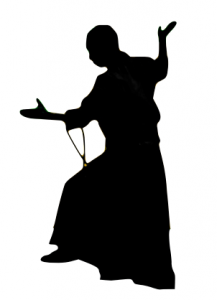
Being stuck in cycles of unproductive and harmful habits, is what is defined as Samsara.
Removing habitual cycles by shedding light on their erroneous nature and becoming free from being overwhelmed by them is known as Nirvana.
In the Buddhist studies Logic is given a central position because of the role it plays in removing erroneous hypotheses.
The method by which logic is applied in the study of Buddhism is through dialectical arguments, and this is commonly called debate.
We will find the subject of our arguments in the Buddhist literature, which will then become the content of the analysis on which the debate will be based.
Once learned, the technique of debate can be used for anything.
In this first session we will begin based on a well-known text, Dudra, or Collection of Topics, a collection of relevant terms and concepts in Buddhist studies.
The content of the text is not in any way religious; it is rather a classification of our phenomenal world in different ways, specifically adapted for dialectic.
On the basis of this material, which will be indispensable in all future phases, we will learn the analysis of concepts by way of the dialectical method. conducted in form of discussion between two people or in group.
Since it is initially difficult to understand the linguistics of the debate, it is necessary to devote some time to familiarizing with the process, but once we have learned the method, this will always be applied as the main method of dialogue in the study of the text.
After understanding the phenomenal world, the topic used for study and discussion will be the nature of the mind that perceives the world, most notoriously defined as Buddhist psychology.
The next subject will be the way in which the mind engages its objects.
The objects we perceive can be divided into those we can perceive directly and those we can perceive through inference. The main emphasis is on how, through inference, we can know the very hidden phenomena.
Since inference is correct or incorrect depending on the reason why it is used, what defines a correct or incorrect reason will be taught.
Analysing these three topics we will deal with phenomena, the mind that perceives phenomena and the way in which perception occurs.
The set of three topics constitutes the introductory subject to Buddhist studies, however, their understanding and the understanding of the logical method and debate in particular, provides valuable tools to train the mind to make reliable decisions, and is therefore useful to any activity that requires thinking.
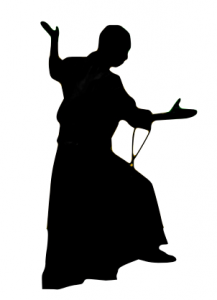
Over the course of three years we will complete the following topics with Rigs Lam’s study method or reasoning/debate.
The three main texts that will support the entire program are sDud Gra, bLo Rigs and rTags Rigs, known as the keys to opening the door of reasoning and traditionally used at the beginning of the study of the main philosophical texts to learn debate, as a tool for content analysis.
First year
From February 7th, 2024 until February 2025
based on the text sDud Gu.ra (Du-dra).
This is the first text taught in most debate-oriented traditions as it contains all the terminology of Dharmakirti’s Pramanavartika and is organized in a way that greatly facilitates debate with the aim of learning it.
During the year we will be able to apply the gradually learned techniques of reasoning to specific dharma subjects, according to the level of knowledge of the group of students, with the purpose of analysing:
1. Four noble truths
2. Two truths
3. Three objects of Refuge
4. Twelve rings of dependent origination.
Second year
From February 7th, 2024 until February 2025
We will base our study on the text bLo Rigs (Lo-rig) which deals with presenting the subdivisions of the mind according to Tibetan Buddhism.
This could be integrated with the topics of Buddhist philosophy concerning:
1. Bodhicitta
2. mental factors and antidotes to the afflictions following the reasoning provided by Shantideva’s Bodhicharyavatara.
3.the various mental states
Third year
From February 7th, 2022 until February 2025
We will base our study on the text rTags Rigs (Ta-rig) where the divisions of valid and invalid reasons used in the understanding of phenomena not directly perceivable are treated.
Having acquired a sufficient basis regarding the method of Buddhist reasoning
we will focus on the following topics of Pramanavartika:
1. The relationship between the reason and the predicate required in a valid syllogism known as ‘Brel wa
2. The Buddhist concept of gZhan Sel.
This is extremely useful for understanding how the conceptual mind works in relation to the senses.
This is also the first step in understanding what imputation is, and how real phenomena can be imputed.
This in turn is very useful when thinking about emptiness and the way in which all things are simply imputed.
Two-year specialization:
- The debate applied to the key subjects of Buddhism (fourth year), the topic will focus on some key subjects of Buddhism such as the 4 Truths of the Nobles and the 2 Truths.
- Application of debate to Lam Rim subjects (fifth year)
The program is structured to be followed mainly online with the help of an e-learning platform (Moodle) with an integrated webinar (Zoom).
It is designed to be agile, dynamic and to create daily interaction between participants:
you can connect live with Atisha (from India), and ven. Kunsang (from Pomaia) through audio and video
- For 1st year, with teacher Atisha Mathur, every Monday afternoon, starting February 7, 2024:
English language class from 2 p.m. to 3:30 p.m. – Italian language class from 4 p.m. to 5:30 p.m. - For the 3rd year, with teacher ven. Kunsang, every Wednesday afternoon, starting Feb. 7, 2024:
English language class from 2 p.m. to 3:30 p.m. – Italian language class from 4 p.m. to 5:30 p.m.
Two-year specialization:
- The debate applied to the key subjects of Buddhism (fourth year), the topic will focus on some key subjects of Buddhism such as the 4 Truths of the Nobles and the 2 Truths. The teacher is Atisha Mathur, every Thursday afternoon, starting February 8, 2024:
English language class from 2 p.m. to 3:30 p.m. – Italian language class from 4 p.m. to 5:30 p.m. - Application of debate to Lam Rim subjects (fifth year) the teacher is Atisha Mathur, every Friday afternoon, starting February 9, 2024:
only Italian language class from 4 p.m. to 5:30 p.m.
The classes will consist partly of explanations by the teacher and in partly of exercises in which the teacher himself can put in communication two students at a time, to enable them to debate, and thereby being able to follow their progress while the rest of the class can learn through listening to the exercise
- To share and download .pdf and .jpg files.
At any time - you will have the possibility to independently start interactive study classes with other students where you can practice debate as well as discuss with the tutor (who can join the class or answer your questions later through the forum).
At any time - Basic training and technical support for users available.
When you need it
So, you won’t be studying alone, and you will be able to contact other students, train with them in debate every day, at any time and how you most find it suitable.
The e-learning page will be your library and the webinar platform will be your classroom. The texts used for study will be immediately available, and as the course proceeds the study material will become richer with the audio recordings of the classes held by the teacher, the debates and the videos that the teacher will choose to share with the students..
Registrations to first, second and third year will close in March 31, 2024.
Applications received after this date but not after April will be taken in consideration for admission. In this case the student will have to commit to catch up with the material already presented by listening to the audio recordings and the texts assigned as support available online.
The content of the program and the teaching require that the student should apply effort in the study as well as in a continual daily practice from the beginning.
Prerequisites required:
None, since the study of logic goes beyond the philosophical knowledge of Buddhism.
This course is recommended for Basic Program and Discovery of Buddhism students.
Course fee:
The annual fee for the first year is 450 euros and for renewal of enrollment for subsequent years 380 euros (possibility of payment in two annual installments) to be paid, for the current edition, by the registration deadline, March 31, 2024:
Your registration will be completed by the payment of the course fee by bank transfer or credit card, which can be made directly from the platform https://corsi.iltk.org/
The registration includes:
- Participation to live classes webinar with Atisha,
- the basic texts for the study in PDF format
- audio recordings of the classes with Atisha
- registration to the forum supported by the tutor
- live review classes with tutors assigned to the courses and recordings
- registration for the intensive residential project which, for the first, second and third year , will be held in 2022 at Lama Tzong Khapa Institute in summer (July or August) 2022.
Board and lodging at the facility are not included.
To make your reservation you will need to contact the Reception Office of the Institute segreteria@iltk.it
How to register
Step one:
Access the e-learning platform through the link below https://corsi.iltk.org
and create an account as prompted. If you have used the Institute’s e-learning platform before, please use the account you already have to log in without creating a new one.
Immediately afterwards, check your email box, the same one you entered to create your account, (please also check your spam box).
You will find a message containing the confirmation link that will redirect you to the e-learning platform.
Proceed using the Continue button
Step two
The Continue button will take you back to the Debate Course page.
Proceed to the payment of the course fee to finalize your registration to the course.
You can pay
- through PayPal, also using your credit card, directly from the page that opened.
Once you have made the payment, the PayPal site will immediately take you back to the course page.
At this point…. “Welcome to class”!!!!
You can start your study. - If you don’t have the possibility to use the PayPal service, don’t worry, the registration procedure is a bit slower, but you can still join the class by making a bank transfer to following coordinates specifying the reason for it:
Lama Tzong Khapa Institute
CARIFI BRANCH ROSIGNANO SOLVAY VIA AURELIA 575/577/579
57013 ROSIGNANO SOLVAY LI
C/A IBAN IT 73 F 03069 25120 000 000 000 565
BIC : BCITITMMXXX
REASON: QUOTA2024-LOGICandDebate (specifying 1st or 2nd or 3rd year)
Once the transfer has been made, send the receipt of payment to
jeremy@iltk.it and spc@iltk.it
We recommend that you do so from the same email address you used to register to the e-learning area, adding to the text also the name with you used to create your account (only if different from your real name and surname).
As soon as we receive your email with the receipt of payment, we will enroll you manually and send you an email to telling you that you have been enrolled.
From this moment on, you are also part of the class! Welcome.
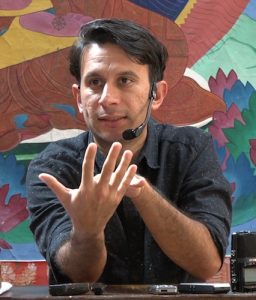
Atisha Mathur grew up in New Delhi where he completed his basic studies.
Atisha Mathur grew up in New Delhi where he completed his schooling. After school he did his undergraduate degree in Languages and Literature of South Asia focused on Tibetan studies from the Orientale in Napoli in 2008.
He then studied for two years in the Central University of Tibetan Studies in Sarnath, Varanasi where he was first exposed to the traditional aprroach to Buddhist studies. Thanks to the kindness of his Teachers, a strong wish to pursue traditional studies resulted in moving to the Institute of Buddhist Dialectics in Dharamsala in 2010 where he is currently in the third and final year of Madhyamika after having completed six years of Prajnaparamita along with Pramana
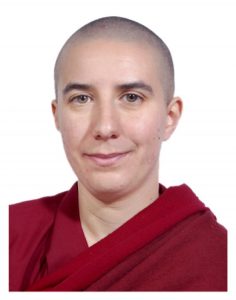
Ven. Lobsang Kunsang first year teacher and tutor for the program The logic and the debate, approach to pedagogy for the study of Buddhism.She was born in La Spezia the 17th of September, 1982 and was was ordained by Geshe Jampa Gyatso in 2007.
She studied FPMT Basic Program and FPMT Masters Program and then under the suggestion of her Lama Kiabje Dagri Rinpoche, she moved to India in Drolmaling, a non sectarian Tibetan monastic Dialectic School for Himalayan nuns under the Tibetan Nun Project, where she lived to study Buddhist Philosophy with the Tibetan nuns and learn the Tibetan Language. She then spent two years at the Kopan nunnery, in Nepal, to continue her studies.
